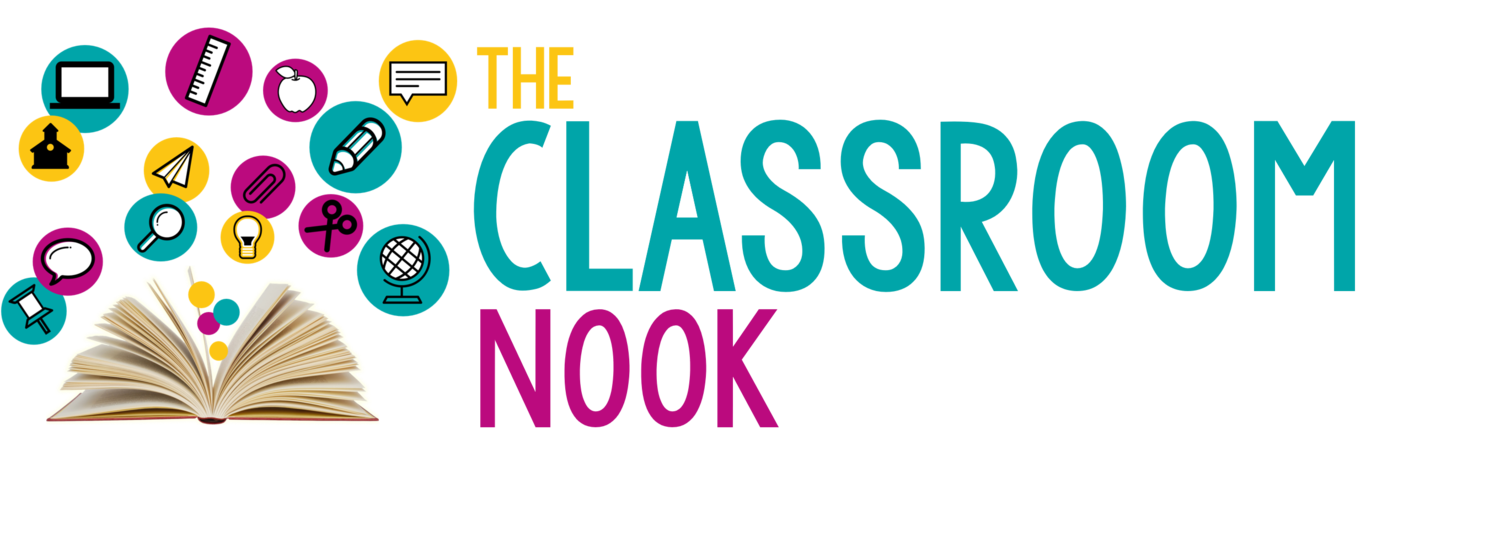7 Habits of Effective Teachers
Love podcasts? Check out this post in the form of a podcast episode on The Classroom Commute Podcast:
Do you have a beautiful and organized looking classroom? Are all your lessons plans prepped and ready for the rest of the week/month/year? Does everything in your classroom match perfectly? Do you have a cute teacher planner?
What if I told you that being an effective teacher didn't depend on your classroom's color scheme or decor?
Don't get me wrong. I LOVE a pretty classroom, but today I'd like to share with you 7 habits that I truly believe are the foundation to being an effective and successful teacher - and guess what? None of which can be accomplished using items from the Target dollar bin (gasp!) :)
Habit 1: Effective teachers are open to change
This one gets tougher and tougher the longer you teach, right. You start to think you've got it all figured out - and then BAM - your administrator tells you that you'll be starting a new reading program in the fall, just after you finished organizing all your reading materials from the old program. Super annoying. But effective teaching means you're ready to make changes that are in the best interest of the students, even if it means a temporary inconvenience. Ouch. That hurts. This of course doesn't mean that every change is great for students, but I'd like to encourage you to keep an open mind as education changes (because it WILL change sooner or later - and probably sooner...)
Habit 2: Effect teachers actively seek out inspiration
We all like to think that we've got great ideas, and we do. But, it's also super important to have a source of inspiration to keep you fresh. Inspiration can come in the form of visiting another teacher's classroom and asking his/her opinion or thoughts about a new project your working on. It can come by reading a new professional development book to spice up your teaching practices. And YES - it can come through looking at your Pinterest feed. Make it a habit to regularly seek on new inspiration.
Habit 3: Effective teachers cultivate family connections
I know, I know. Sometimes parents can be a little demanding and think that their child could do no wrong. But - effective teachers work with their students' families to build strong relationships, even if you don't always see eye-to-eye. This also means that effective teachers are NOT threatened by parent advocacy. It's important for us to really listen to parents' concerns. "But they are just being difficult!" or "They don't trust my expertise as a teacher."
I know. I felt that way, too. However, effective teachers always try to find the middle ground. Because if you don't, then you'll ALWAYS be wrong in the parent's eye. Even when you're right.
Habit 4: Effective teachers set clear objectives
Not just for their students, but also for their students' parents, their coworkers, and for themselves. When you and everyone knows what the end-goal is, then everyone can work together to reach it together. Class newsletters or even a class blog/website, grade-level team meetings, and meeting and conferencing regularly with individual students all are great ways to communicate and set clear objectives.
Habit 5: Effective teachers are positive
Yes, this means they stay out of teacher lounge drama and gossip. Avoid those co-workers that you know thrive on the school drama. Smile and move along.
Habit 6: Effective teachers reflect constantly
Not just at the end of the school year, but each day and with each lesson. Remember: habit 1 says that effective teachers are open to change. Just because you've ALWAYS done something a certain way, doesn't mean that there isn't a better or more engaging ways. What worked for last year's class, might not work for this year's class. Reflect and change your teaching practices as needed.
Habit 7: Effective teachers don't HOPE for success, they EXPECT it.
Set high standards and expect your students to meet them. Students can tell when you have low expectations, and they will usually give you the bare minimum - if that's all your expect. If you set the tone that success is possible (with the appropriate support), students will reflect that in their own attitudes toward learning. And when you don't achieve success - see habit 6 :)

